News
‘Access to sanitary products, clean facilities, proper information not luxury’
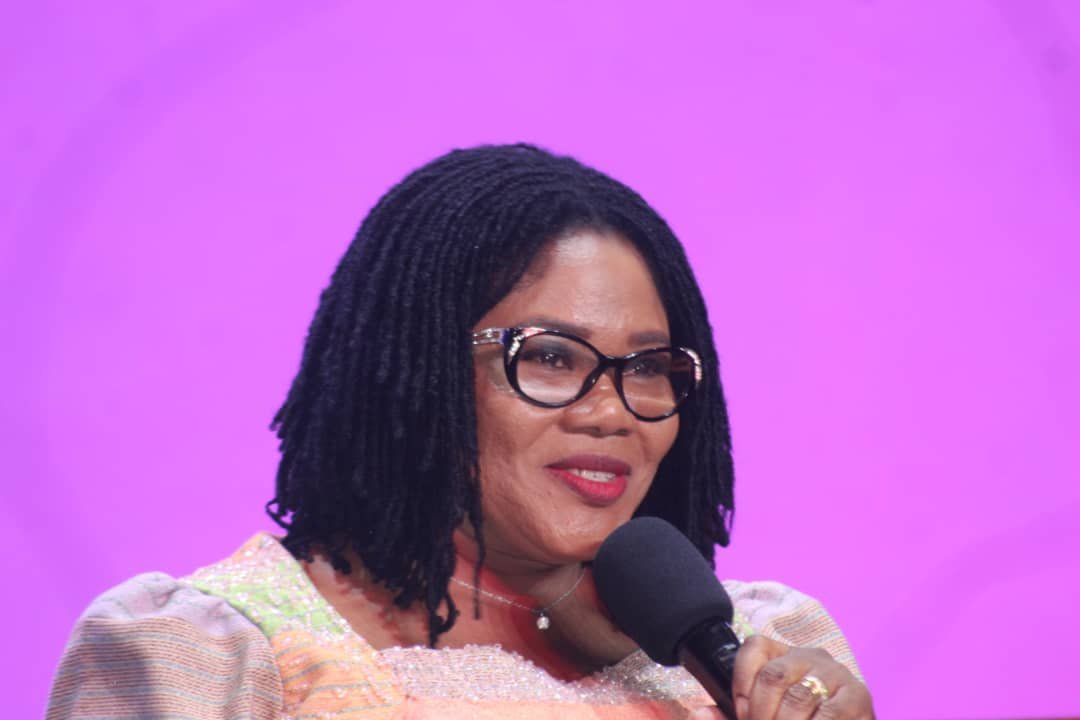
Access to sanitary products, clean facilities, and proper information is not a luxury but a right,” the Minister for Gender, Children and Social Protection, Dr Agnes Naa Momo Lartey, has said.
Dr Lartey explained that menstruation was a natural biological process and that no girl should be made to feel unworthy, excluded or ashamed because of it.
She said this in Accra last week when she addressed school girls drawn from selected basic and Senior High Schools (SHS) in the Greater Accra Region.
The event which was organised by Touching Lives of Girls Foundation International (TLGFI), a non-governmental organisation that focuses on promoting menstrual hygiene.
It formed part of activities to mark World Menstrual Hygiene Day (WMHD) which is observed on May 28 every year.
According to Dr Lartey, the theme for the year “Making menstruation a normal part of life by 2030,” was not just a call to action but a commitment to dignity, inclusion and equality.
She mentioned that the Ministry has harmonised and mainstreamed gender into social protection programmes and other governmental interventions to effectively support and protect the vulnerable and marginalised for national development.
“We are proud to stand at the forefront of efforts to improve menstrual hygiene management across Ghana and believe that ensuring access to menstrual products, accurate information and safe sanitary facility is not only a health issue but also a human right issue,” the Minister said.
She stated that menstruation was a natural and essential part of life and that it should never be a source of shame, stigma or fear.
She said in many communities, girls were forced to miss school, suffer in silence or use unsafe methods due to lack of access to sanitary products and information.
Dr Lartey mentioned the establishment of support systems to address sexual abuse, including the Ministry’s Orange Support Centre, the Buame App and dedicated free helplines to report abuse.
An Obstetrician Gynaecologist at St Dominic Hospital, Akwatia, Dr John Bosomtwe, also called for a more comprehensive and gender-sensitive approach to education and sanitation in schools, emphasising the crucial role that schools play in shaping the lives of young people, particularly girls.
He said schools need to go beyond academic instruction to provide an environment that nurtures and supports girls during their most vulnerable periods.
“Schools have a primary role of formation for all of us, especially the girls,” Dr Bosomtwe said. “We need to consider comprehensive education that addresses administration-related challenges in a way that is age-appropriate and sensitive to their needs.”
He commended the existing collaboration between schools and district health management teams under the School Health Programme (SHEP), describing it as a valuable framework that can be further explored and strengthened to benefit students.
Dr Bosomtwe stressed the importance of involving boys and male teachers in menstrual health education to foster empathy and support within the school environment.
By Esinam Jemima Kuatsinu
News
‘Thousands of Ghanaian women suffering from Obstetric Fistula’
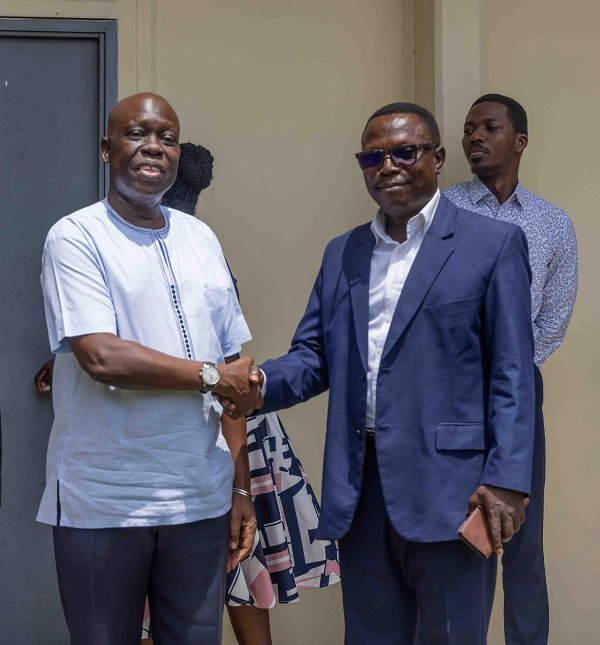
Thousands of Ghanaian women continue to suffer in silence from Obstetric Fistula (OF) due to inadequate access to surgical treatment, the United Nations Population Fund (UNFPA) has revealed.
Dr Wilfred Ochan, UNFPA’s Country Representative, disclosed that over the past decade, Ghana has accumulated a backlog of more than 12,000 untreated cases, despite recording an estimated 1,300 new cases each year.
He made the remarks during a visit to the New Times Corporation (NTC) in Accra to mark the International Day to End Obstetric Fistula (IDEOF).
“Only 1,000 repairs have been done in 10 years. That leaves thousands of women isolated, in pain, and excluded from society due to a condition that is both preventable and treatable,” Dr Ochan said.
He stressed the need for greater investment in surgical capacity, public awareness, and partnership, especially with the private sector— to accelerate Ghana’s efforts to eliminate the condition by 2030.
Obstetric Fistula results from prolonged or obstructed labour without timely medical care, causing a hole between the birth canal and bladder or rectum, leading to continuous leakage of urine or faeces. The consequences include stigma, chronic incontinence, and often, the death of the baby.
To help close the treatment gap, the UNFPA is working with health institutions including the Komfo Anokye and Cape Coast Teaching hospitals to scale up surgeries and outreach.
“We must not allow women to suffer lifelong trauma for simply trying to give life,” Dr Ochan urged.
The Managing Director, Mr Martin Adu-Owusu, pledged NTC’s support in raising public awareness and promoting maternal health initiatives.
“We are ready to collaborate with you to ensure that maternal deaths and issues affecting women come down to the barest minimum so that together we can achieve the UN goal to eliminating Obstetric Fistula by 2030,” he said
By Esinam Jemima Esinam
News
Inflated prices of Abaya, Jalabiya on Eid-al-Adha celebration
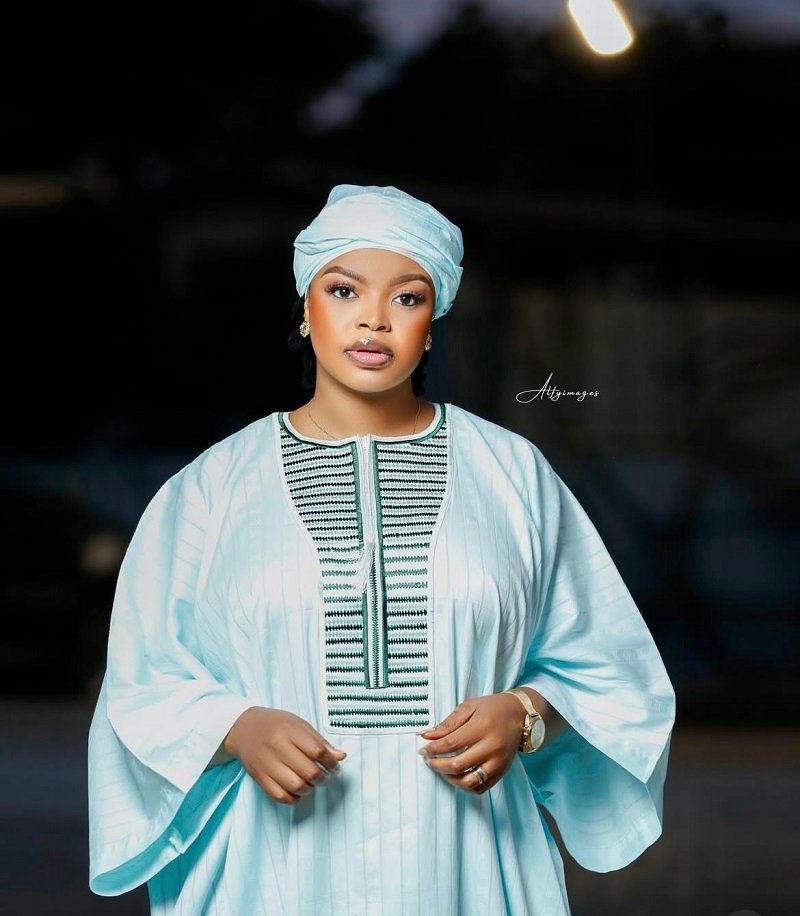
Muslims in Ghana and all over the world yesterday observed the Eid-al-Adha celebration.
It falls on the first day of Shawwal, the 10th month of the Islamic calendar and is celebrated by Muslims to mark the end of the month-long dawn-to-dusk fasting of Ramadan.
The build up to yesterday’s edition was characterised by a high demand for traditional Islamic attire here in Tamale, leading to a sharp rise in prices.
Checks by The Spectator from the various markets in the Tamale area revealed that prices for popular outfits like the Abaya, Jalabiya, and Kaftan have skyrocketed within the period.
Although there is no prescribed outfit for the celebration, many Muslims in Tamale traditionally choose modest and loose-fitting garments that reflect Islamic values.
Abayas and Jalabiyas often imported from Turkey, Dubai, Egypt, and Northern Nigeria have become particularly the most sought-after attires, resulting in the price hikes.
Currently, prices for men’s attire range from GH₵250 to GH₵800 while women’s outfits are selling from GH₵350 to GH₵1000.
Children’s garments are also not left out of the pricing craze. Bargaining for the youngsters starts from GH₵150.
Hajia Naila Abdul Karim, owner of ‘Cover with Style,’ confirmed a significant surge in sales in the holy month.
“Each day, more than 20 people, mostly women walk into the shop. We also send over 40 parcels daily to customers across the country,” she stated.
She attributed the price increases to the cedi’s depreciation and a recent shortage of Turkish imports, noting that most of her stock now comes from Dubai.
Hamdia Kamil, a loyal customer, shared her experience: “Two years ago, I bought an Abaya for GH₵350. This year, it’s GH₵650. I had no choice because it’s a special occasion and I want to feel good. Still, I hope the dresses are made affordable so others can also celebrate in style.”
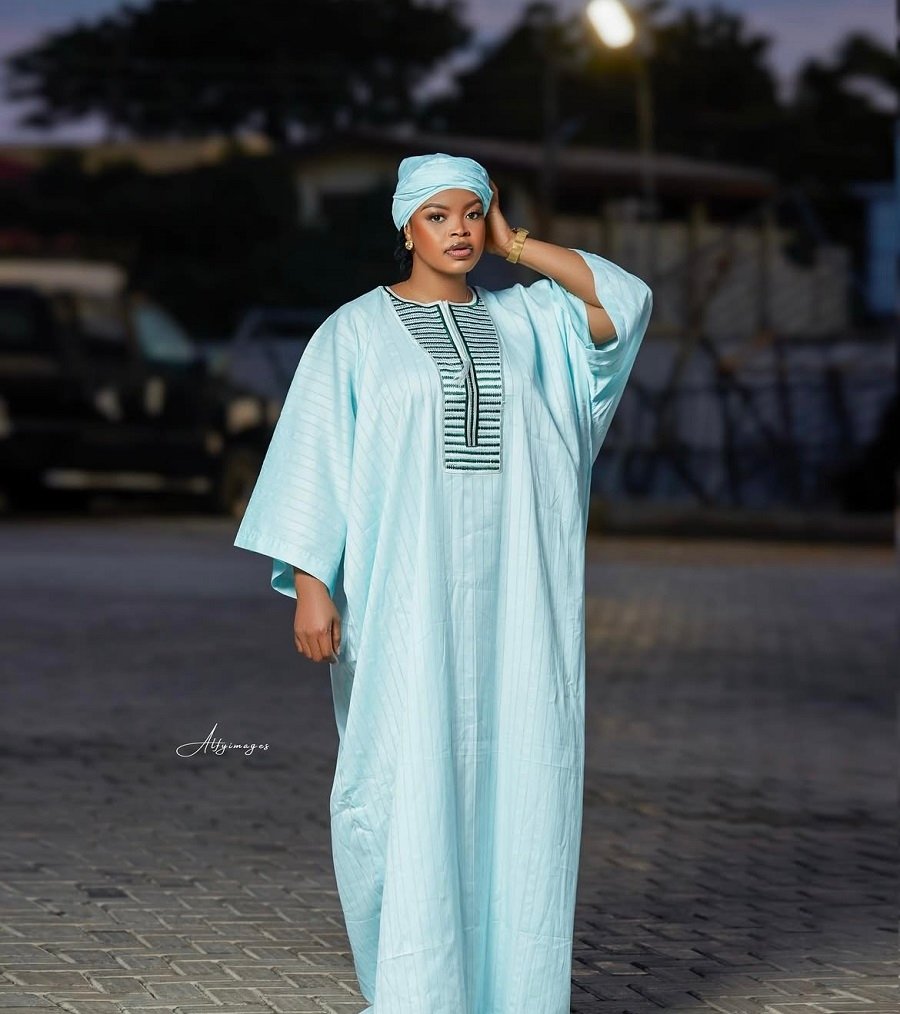
At Baby Last Closet in Sakasaka, another fashion outlet, prices for women’s outfits range from GH₵350 to GH₵1,300, while men’s attire goes from GH₵250 to GH₵1,000.
“Some customers complain about the cost, but because it’s Ramadan, many still go ahead and buy,” said the shop owner.
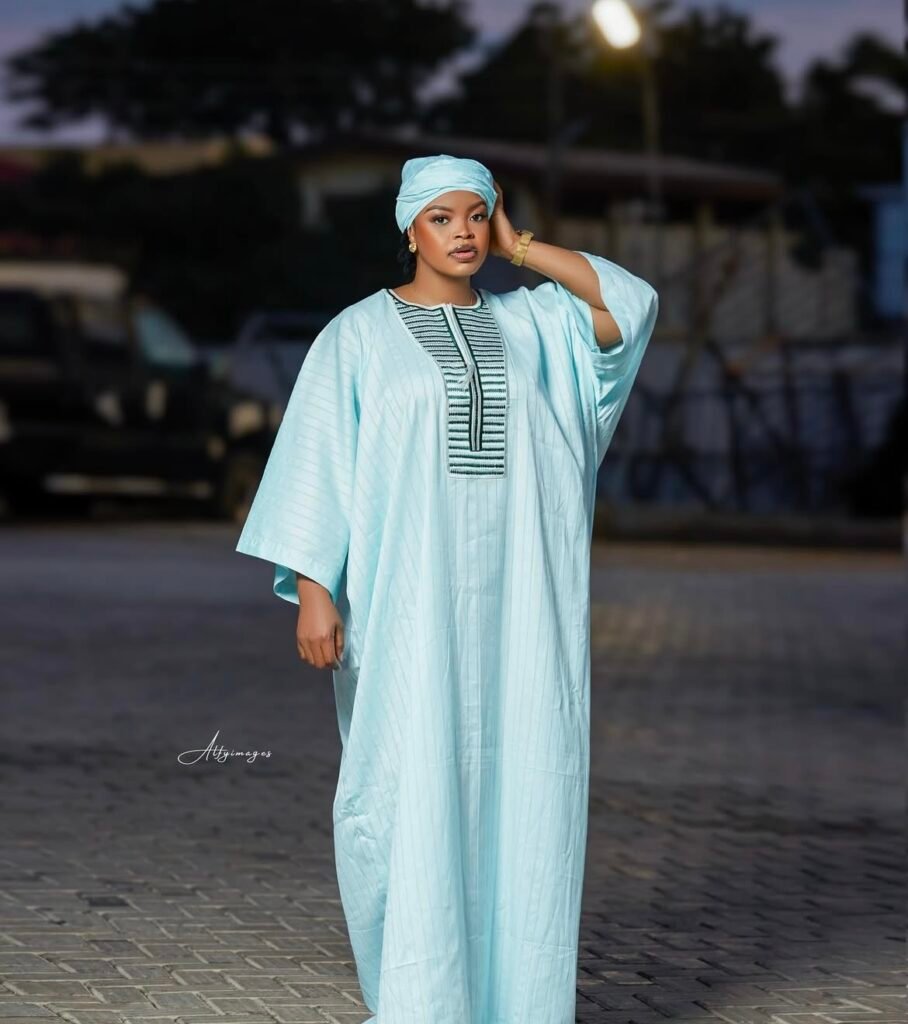
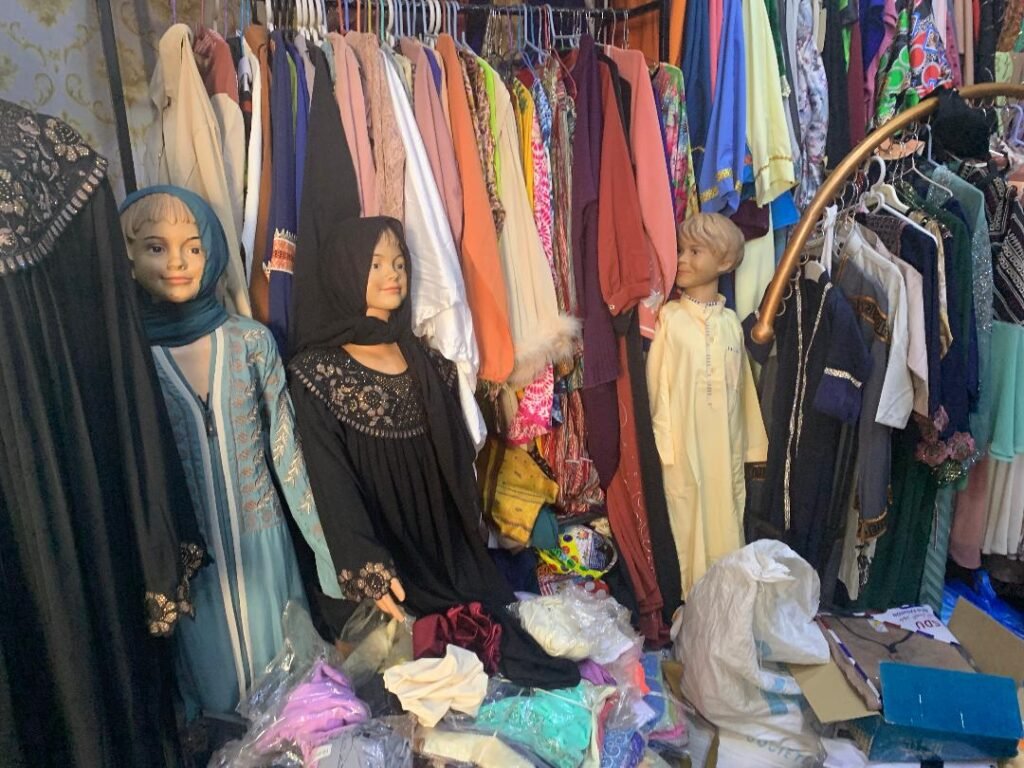
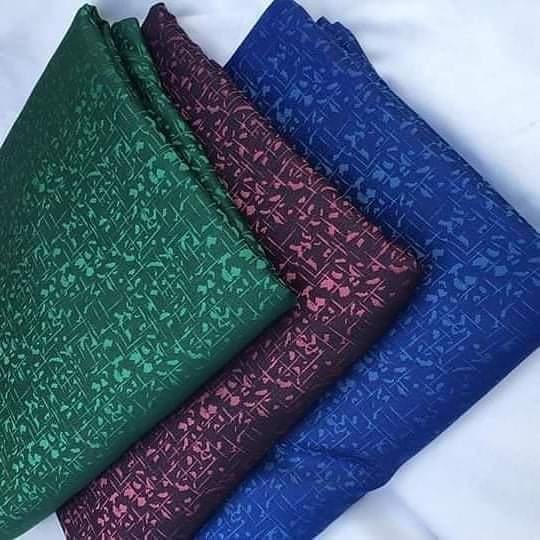
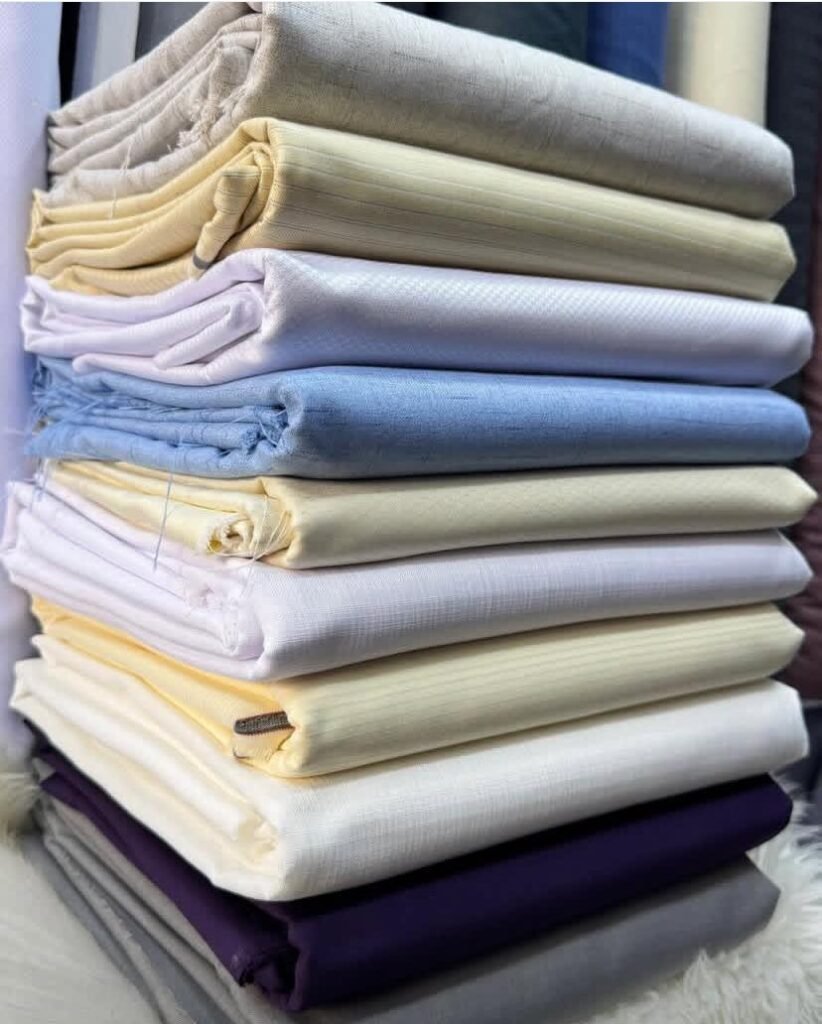

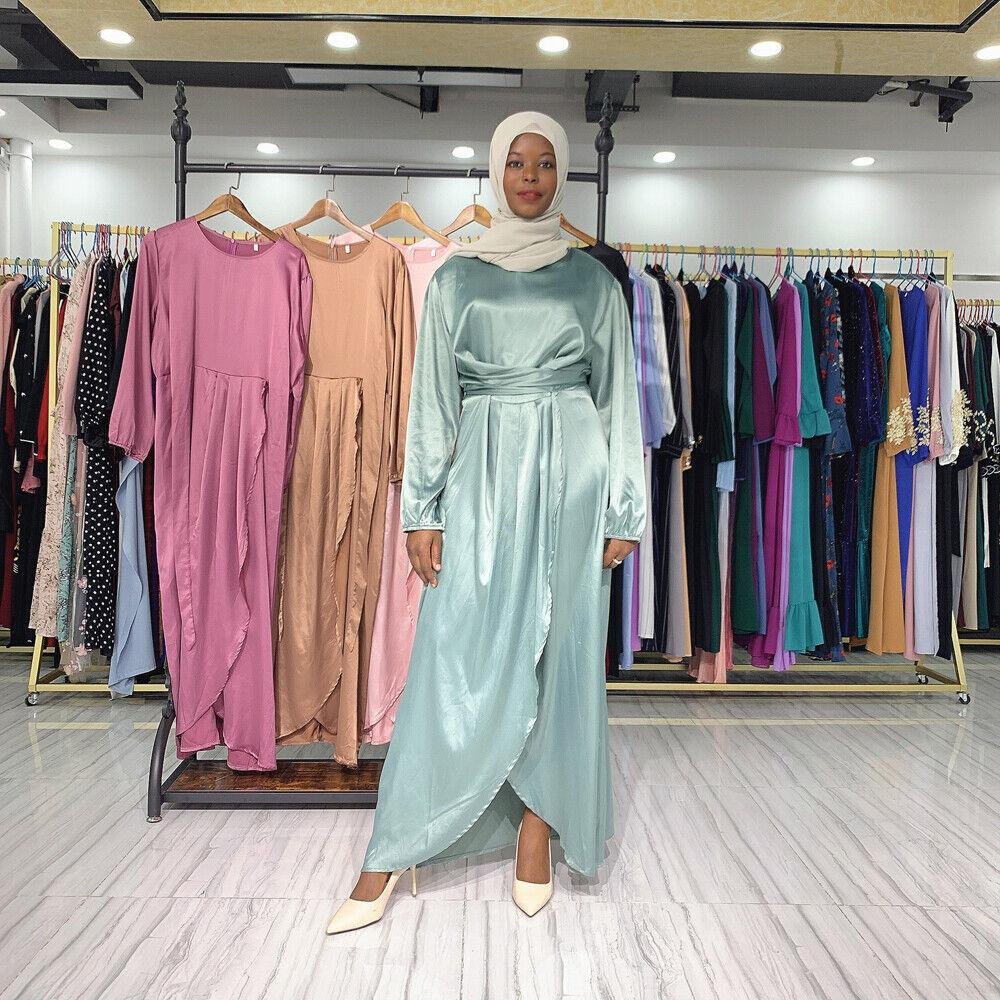
Similarly, Mandy’s Haven at Zogbeli sells exclusively for Eid celebrations, dealing in high-end Abayas, Jalabiyas, and Kaftan materials. Prices there reflect quality and origin, with female attire ranging from GH₵450 to GH₵5,000, and kaftan fabric sold at GH₵200 per yard.
For many, including resident Iddrisu Suale, the holy month remains a sacred period despite the economic pressures. “Things are expensive this year, but I still want to make the day special for my children. I plan to get them Abayas and Jalabiyas from Egypt,” he indicated.
Despite the bustling nature of preparation and the high cost of goods, resident expressed optimism of having a good time in observing the deep spiritual significance of the occasion.
Story & photos by Paul Dery











